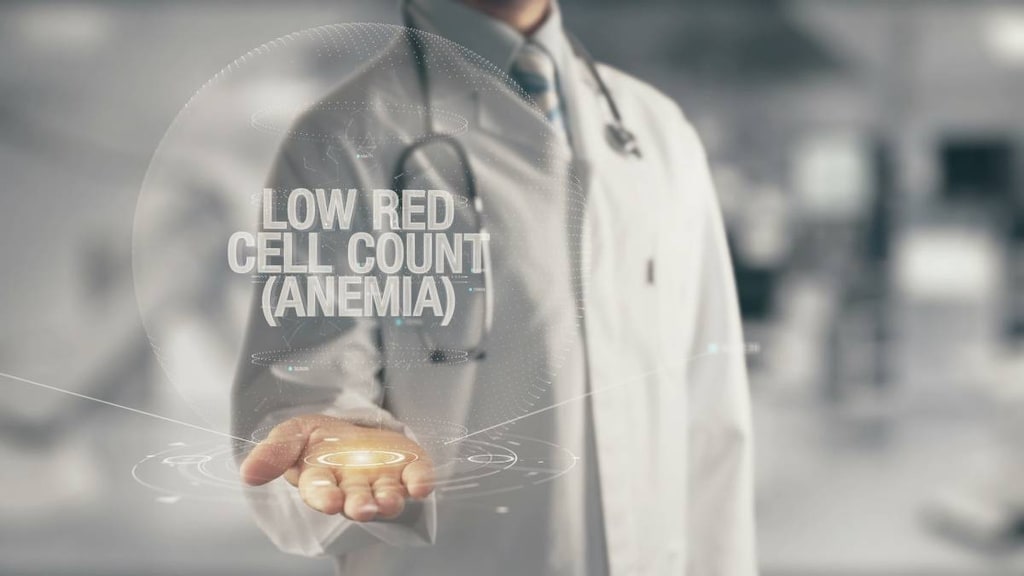
What is pernicious anemia?
Pernicious anemia is a type of anemia caused by a deficiency in vitamin B12 (also called cobalamin). Anemia means the body is low in normal red blood cells.
What causes pernicious anemia?
Vitamin B12 is a type of B vitamin that is found naturally in animal products such as eggs, fish, meat, milk, and milk products. Fortified breakfast cereals usually have vitamin B12 added to them, because we can only get vitamin B12 from our diet, our body cannot make it. Vitamin B12 is vital for making red blood cells and for the functioning of our nerves and DNA.
Vitamin B12 deficiency usually occurs because of a lack of intrinsic factor, which is a substance that is produced in the stomach lining that is necessary for the absorption of vitamin B12. Some babies are born without any intrinsic factor and some older adults suffer a decrease in intrinsic factor production, which is usually caused by an autoimmune condition that causes the stomach lining to waste away. Other causes of vitamin B12 deficiency include:
- Poor dietary intake of vitamin B12. This is more common in alcoholics, the elderly, or people who avoid animal products, such as vegans
- Poor absorption of vitamin B12 due to celiac disease (gluten intolerance), gastritis (stomach inflammation), Crohn’s disease, HIV, or surgery or pancreas problems
- Inflammatory bowel diseases, such as Crohn’s disease
- A tapeworm infection
- Some medicines (such as antibiotics, diabetes medicines or anticonvulsants) that alter bacterial growth or prevent absorption of vitamin B12
- Breastfed infants of vegan mothers.
What are the symptoms of pernicious anemia?
Symptoms reflect either the anemia or the deficiency of vitamin B12.
Anemia symptoms are the same as other causes of anemia and reflect the fact that the body doesn’t have enough red blood cells to carry oxygen to your tissues, heart, and brain.
Symptoms may include:
- Fatigue (tiredness)
- Chest pain
- Cold hands or feet
- Dizziness
- Headache
- Heart problems such as an irregular heartbeat (arrhythmia), an enlarged heart, or heart failure
- Pale or yellowish skin
- Shortness of breath.
Signs of vitamin B12 deficiency include:
- Bloating or gas
- Constipation or diarrhea
- Heartburn
- Loss of reflexes
- Muscle weakness
- Nausea or vomiting
- Poor balance
- Smooth, thick, red tongue
- Tingling or numbness in your hands and feet
- Unsteadiness or difficulty walking
- Weight loss or loss of appetite.
Vitamin B12 deficiency can lead to bone loss, increasing the risk of fracture. Severe vitamin B12 deficiency can result in confusion, dementia, depression, and memory loss.
Infants who have vitamin B12 deficiency may be irritable and have trouble feeding due to tongue and throat problems. Their reflexes may be poor and unusual body movements may be noticeable (such as facial tremors). Untreated, vitamin B12 deficiency can lead to permanent growth problems.
How is pernicious anemia treated?
Pernicious anemia is treated by giving supplemental vitamin B12, either as oral tablets; a nasal spray or gel; or an injection given once a month once the initial course has been completed. Most people with vitamin B12 deficiency need lifelong treatment.
Other treatments aim to prevent or manage the complications caused by pernicious anemia, such as heart or nerve damage. If a treatable cause can be found, doctors will try to treat that (ie, correcting dietary deficiencies, changing medications, or treating absorption problems).




